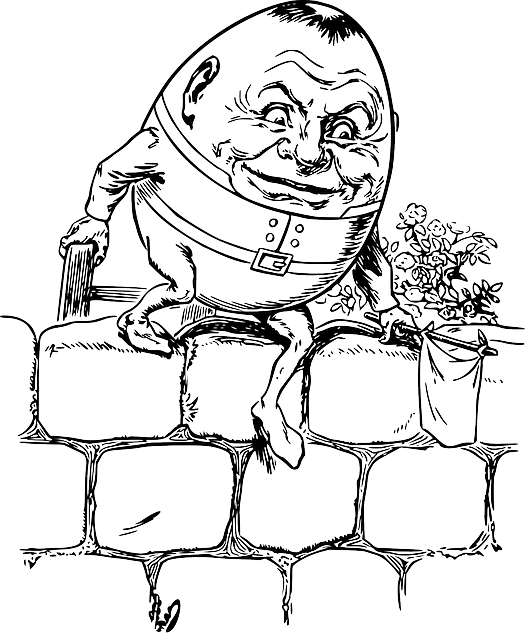I just finished Jill Myles' Mirrorlight, a short story about time travel and uncontrollable lust. Gotta love it. And I love Ms. Myles, aka Jessica Sims, aka Jessica Clare. Talented lady and clearly a little schizophrenic. But I like that in an author. Never gets stale or boring when you get to read completely different kinds of stories with different characters. And sometimes I really like a good short story. Not too much commitment involved and anthologies are a wonderful way to meet and audition new authors. Or spend time with those I know I already enjoy. Like Ms. Clare/Sims/Myles. But, this is not the subject at hand. I know, you are shocked. Today I'm pondering a question raised by Ms. Myles' story, namely, what do we care enough to fight for?
As always, I will speak for myself and hope that you all will tell me how you feel about all this when you read this post. But as the heroine in Mirrorlight was being berated for her apathy and the lack of objection with which she faced the loss of her job and her fiancé when the going got just a smidge tough, I had to ask myself, what was I willing to go to any length to have or to keep? And what does that even mean, anyway?
As a parent, I know I am willing to fight for my kids. Usually, though, that doesn't mean anything more strenuous than meeting with a teacher or another parent to defend one of my sons against an unjust accusation or unfair treatment. Recently, I got into it with my neighbor who claimed my kid had done something bad to his kid. But I'm not sure this counted as fighting for something.
Now, it is true that nothing I've ever let go of didn't have claw marks on it. I'm actually not so great at the whole letting go thing. I didn't even break up with my former fiancé until more than a year after we had "postponed" our wedding. And I've stayed in jobs way past the expiration date more times than I care to remember.
But it's not clear to me that any of that counts as fighting for something I felt passionately about. I think all of those instances were more about inertia and fear of moving on and doing something new. And why am I having such a hard time answering this question?
What do we fight for? Well, in the literal sense, as a society, we fight our enemies, terrorists, criminals, drugs, poverty and probably other things we are supposedly at war with. War requires fighting. And presumably, as a society, we believe that we need to fight these things. And for those in the armed forces, or law enforcement, or economic development or counterterrorism, there are front lines that are dangerous and that embody fighting in its most concrete form.
But what about the rest of us? Do we fight for anything? Does anything stir our passion? Sadly, and maybe I'm just being very short sighted, but the only things I can think of that seem to stir up passion these days is hate. As a society, we seem to be passionate about hating the other, however the other, those who are not like us, is defined.
I don't think hate is what Ms. Myles had in mind with her question. I think she was asking us about our motivation to passion not based in hate or fear, but rather love and compassion and connection. What are we willing to fight for in that arena?
I was a bit saddened recently when one of my sons decided he wanted to ask a girl to homecoming. Which was great. But he wasn't willing to ask her until he had received some assurances that she was going to say yes. He really wanted to go with her, but wasn't willing to fight for her, which in this particular instance could be defined as being willing to risk rejection. He wanted more of a sure thing. The equivalent of a fixed fight, where the outcome is assured ahead of time. I tried to dissuade him from his chosen path, but he was having none of it.
Aversion to risk does not equate to fighting for something we really want. To fight implies the possibility of loss, of failure. Which is why the choice to fight is so hard. None of us likes to risk failure. God only knows what might happen if we fail. So we don't fight. We throw in the towel before the referee has even blown the whistle. We walk away from the fray. If we don't fight, we can't lose.
Except it doesn't work like that. Not really. If we don't fight, we lose for sure. With the only consolation being that we can tell ourselves that we might have won if we'd wanted to. We could have triumphed if we'd decided to engage. But we didn't. So we can tell ourselves the loss didn't count and protect our fragile egos from the reality of our cowardice. Unlike Ms. Myles' character in Mirrorlight, most of us don't have a fairy godmother hanging around offering to provide courage. Most of us rely on the liquid variety instead, which only serves to obscure reality and steal time away from us so that we don't pay attention to the losses.
So, I will continue to think about what I'm willing to fight for, and what that battle might look like in my current life. Because I'll be damned if I'm willing to give up on something important because I'm afraid my ego will take a little beating. I think I'm more afraid of surrender than of fighting. But that is another post entirely, isn't it? So stay tuned. And until then, maybe we can let Ms. Myles play the role of fairy godmother for just a few minutes and encourage all of us to fight for what we want. Who knows, we might get it. And isn't that better than telling ourselves that we could have been a contender?



















